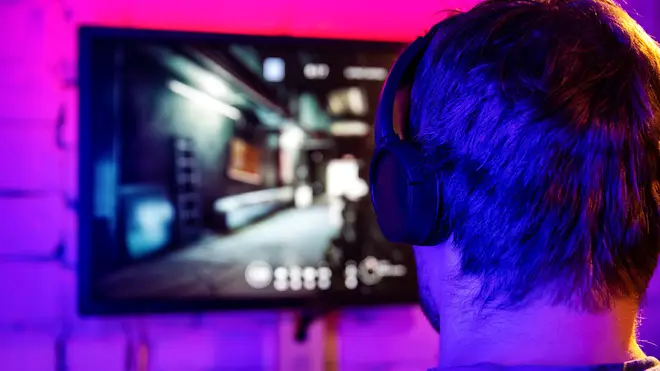
Clive Bull 1am - 4am
16 January 2024, 23:34

A review of 14 global studies involving more than 50,000 people found that sound levels are often near, or exceed, safe limits.
Video gamers are at risk of irreversible hearing loss and tinnitus, researchers have warned.
A review of 14 global studies involving more than 50,000 people found that sound levels are often near, or exceed, safe limits.
People also tend to game for long periods of time, while impulse noises – such as shooting sounds – can be very high, experts said.
Given the popularity of gaming, including among children and teenagers, more needs to be done to raise awareness of the risks, they added.
The study, published in the journal BMJ Public Health, concluded that “gamers who are listening at high-intensity sound levels and for long periods of time may be at risk of permanent sound-induced hearing loss and/or tinnitus”.
It added: “Findings suggest that there may be a need to prioritise interventions, such as initiatives focused on education and awareness of the potential risks of gaming, that can help promote safe listening among gamers.”
The team, including experts from the University of South Carolina and the World Health Organisation, pointed to guidelines showing the “permissible” time a person can be exposed to 83dB sound is 20 hours, while for 86dB it is 10 hours, for 92dB it is 2.5 hours and for 98dB it is 38 minutes per week.
For children, permissible noise exposure levels are lower – 75dB for 40 hours a week.
Under this definition, children can safely listen to sound at an 83dB sound for approximately 6.5 hours, an 86dB sound for approximately 3.25 hours, a 92dB sound for 45 minutes, and a 98dB sound for just 12 minutes per week, the team said.
However, the study found that, on average, levels are often near this or higher and warned that shooting sounds and other high sounds are not necessarily captured by average sound intensity levels.
The researchers called for further work in the area, adding: “The limited available evidence suggests that gaming may be a common source of unsafe listening, which could place many individuals worldwide at risk of permanent hearing loss and/or tinnitus.
“Additional research on these relationships is needed along with steps to promote safe listening among gamers.”
Franki Oliver, audiology manager at the hearing loss charity RNID, said: “There are two factors that increase the risk of noise induced hearing loss and tinnitus – how loud the sound is, and how long you are exposed to it for.
“If you use gaming headsets or headphones, it’s really important not to exceed safe volume limits on your device.
“Younger people may not realise how loud the volume is so it’s a good idea for parents and carers to encourage regular breaks and turn the volume down if it’s too loud.
“Noise induced hearing damage can be permanent, but it is preventable.
“We welcome more research into this area, and encourage everyone to be mindful of the simple steps you can take to protect your hearing, whether you’re gaming, enjoying live music, or working in a noisy environment.”